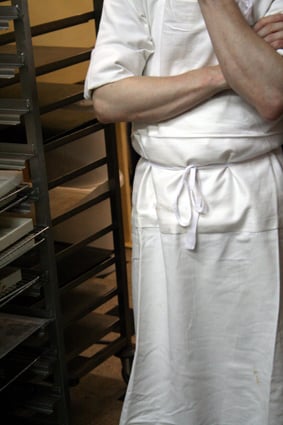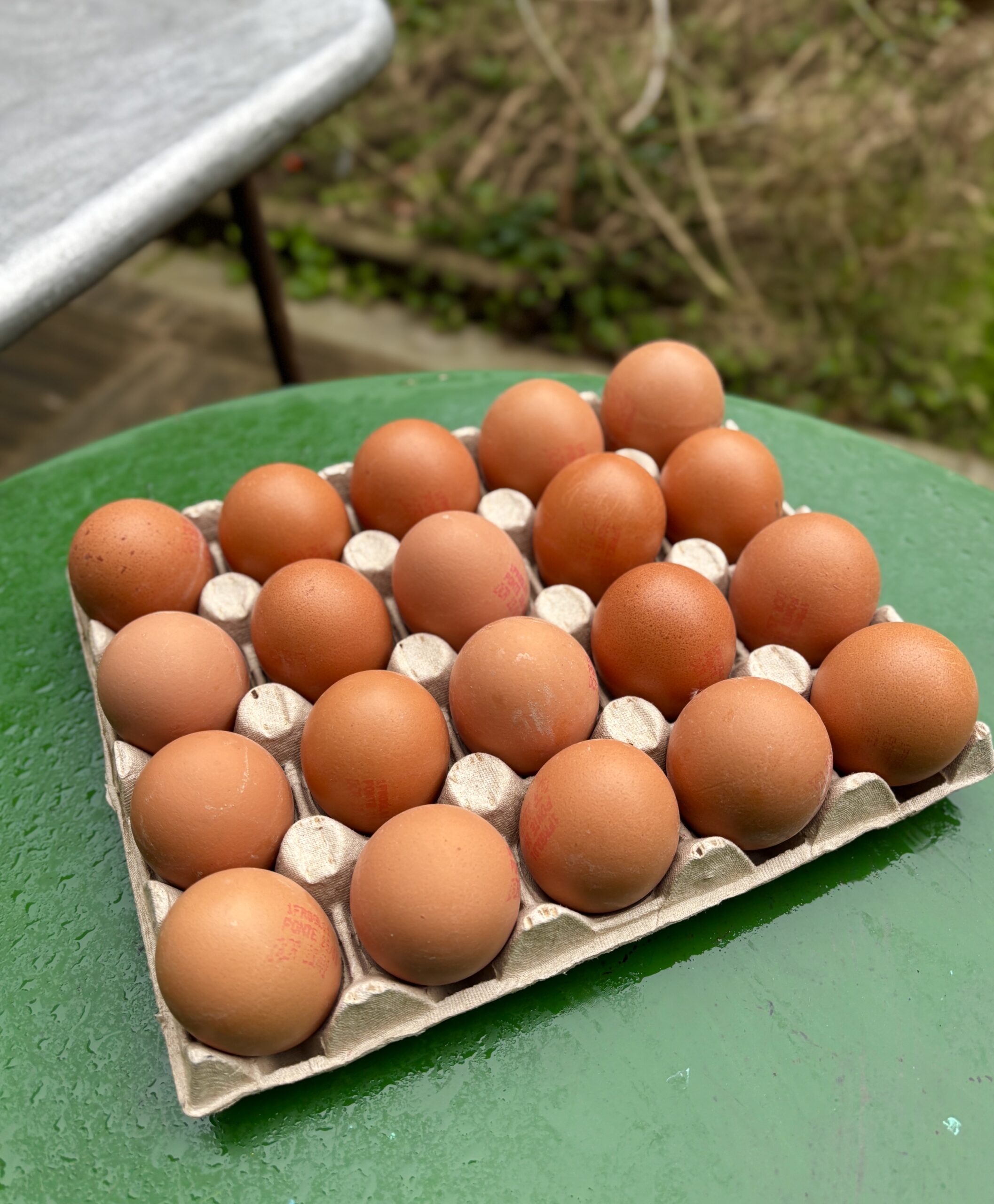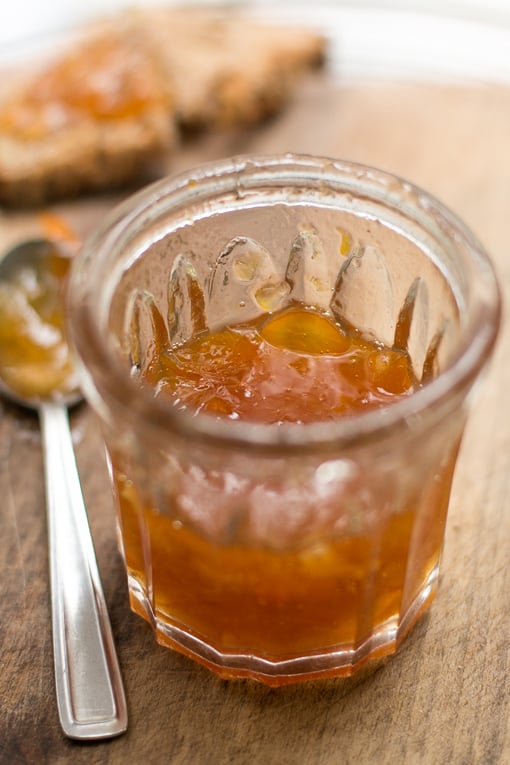Should You Go To Culinary School?

If you’re thinking about becoming a professional cook, whether or not to go to school may be the ultimate question for you to ponder. There are some very good culinary schools, but in general, I think it’s worth getting some experience either in a restaurant kitchen or bakery before you decide to invest a lot of money in education. Perhaps the work is far more challenging than expected, or the pay is going to be far (very far) lower than what you’re making as, say, an anesthesiologist.
Should You Go To Cooking School?
Over the years, I’ve gotten number of inquiries for people thinking they’re like to cook professionally. Perhaps much of the interest began when the ‘celebrity chef’ craze took hold in the 80’s and people began thinking it was exciting to work in a restaurant kitchen. I know, since I was one of those people. I loved restaurant work (well, most of the time) and it can be lots of fun depending on where you are. I’ve had some of the most exciting times of my life working in restaurant kitchens, but it can also be a living hell.
Fortunately I was at Chez Panisse for over 12 years, in an environment where the quality of the ingredients and menus were of utmost importance. And we became somewhat of a loose-knit family, since many of us spent over a decade working together, night & day.
The downside of professional cooking is that the work can be extremely difficult, the hours are long, and it exhausts you down to the bone. A typical work day is often well over 8 hours and you rarely get a break. I’d once mentioned that at a fancy dinner party which completely stopped forks in mid-air. People had no concept of jobs without breaks. And if you’re sick or injured, you’re expected to work.
Professional cooking is exhausting and you’ll find yourself engaging in unusual behavior after work; bowling with co-workers at 3 in the morning, consuming far too much wine, waking up on the floor of the dining room half-dressed, and becoming addicted to late-night reruns of Charlie’s Angels which you discover your co-workers like too.
In spite of it all, the work is a lot of fun. You get to be creative, work with interesting people, and you see a lot of politically-incorrect and borderline sexually-deviant behavior. (Boy, do I have a lot of stories there…someday, I think…someday…)
Plus you get to cook all day (and night.) The downside is the money. Most restaurant workers, such as line cooks, make $15,000 to $25,000 per year, and if you work in a major American city, that’s not a heckuva lot of money. There’s little room for advancement, unless you become the chef or sous chef, and even so, the pay is likely to be quite a comedown for anyone who’s professionally employed in another field.
Be prepared for your work to become your social life. I spent my entire 20’s and 30’s working almost every night, and that was my sorry social life. I rarely went to parties and when I left the business I realized I missed having a relatively normal social life. While much of the restaurant business has become romanticized, it’s a lot of work and you’ll be giving up your nights and weekends.
I had a friend who wanted to start a catering company. When I suggested he keep his very high-paying job and work on weekends to see if he liked it, he told me, “Oh no, I don’t want to work on weekends.”
For more detailed advice on the business, you may want to read the following:
–The Making of a Pastry Chef by Andrew MacClauchlan
–On Becoming A Chef by Andrew Dornenburg and Karen Page
–Letters To A Young Chef by Daniel Boulud
–The Soul of A Chef by Michael Ruhlman
–Kitchen Confidential by Anthony Bourdain
So…Should You Go To Cooking School?
Going to professional pastry school is a big and sometimes expensive commitment.
Only you can tell if the cost will be worth it. Before you sign up for a private school, check to see if the city or state college in your area offers coursework. Eric Shelton became a prominent and highly-respected pastry chef in San Francisco and attended a local community college culinary program for a small fraction of the cost of a fancy private school.
Another friend worked in admissions for an expensive private culinary school and was forced to attend seminars in ‘recruiting techniques’ that would make a Ron Popeil infomercial look tame. She was told to ask if they had any family pictures in their wallet. And when they opened their wallet, check to see if there were credit cards, which they could mention later as a source for the down payment. That’s not to say all private schools are not good, or are trying to cheat students, and indeed I’ve visited several that were excellent. I just think you should investigate several options and speak to some of the graduates or check their blogs, listed below.
My Advice
I highly recommend volunteering (yes, folks, work for free) in a well-regarded restaurant kitchen or bakery before making any big changes or paying anyone anything. Every kitchen I’ve worked in could always use a good pair of hands to help. It’s a great way to see if the work is for you. I had an intern tell me her first day while peeling apples, “This is really boring…” so I knew her career would be short-lived (and I hope I saved her thousands of dollars and years of misery.) The best assistant I ever had was a woman that was a flight attendant for Pan Am for many, many years. Even though she had no cooking experience, I knew that she could learn and handle anything. And I was right, she was a dynamo, learned quickly, and soon after I hired her could do anything I asked her to.
As for schools, once you decide you want to cook professionally, you may want to go to school to hone your skills. I worked professionally for 20 years before I took any classes. At that point, I had learned the basics and knew what I wanted to focus on, which became chocolate and confectionery.
I don’t recommend any particular school, since each school and person is different. The schools that I attended, Ecole Lenôtre and Callebaut College (now called the Barry-Callebaut Chocolate Academy, and l’École du Grand Chocolat Valrhona, are for professionals only who know the basics and already have many years of experience. These schools assume a certain level of knowledge and concentrate on advanced techniques.
There are plenty of schools that do teach basics and you may want to check out the ads and listings in Pastry Art and Design Magazine for pastry schools, since many of the professional schools advertise there, as well as some of the online resources listed below.
An Important Last Point…
Lastly, be sure to properly thank people and express gratitude to those who assist you.
If someone’s taken the time to help you professionally, perhaps by giving you good advice or taken you in as an intern, be sure the remain on the best of terms with them. A short note or written message is good manners and always leaves a positive impression. I’ve kept in touch with some of my favorite interns and have given them great recommendations or helped them with their careers, as others have helped me. The professional cooking world is relatively small and news travels fast.
So make sure the news about you is always good.
Related Links:
Finding a Cooking Class in Paris
Culinary School: The Pros and Cons (Eater)
Does Culinary School Matter? (The Atlantic)
“Top Chef” Dreams Crushed by Student Loan Debt (New York Times)
For-Profit Colleges Face Lawsuits, US Scrutiny (SF Chronicle)
How to get a job in a restaurant or bakery (Eggbeater)
Want to go to pastry school? (Dessert First)
Sacré Cordon Bleu! (Michael Booth, via Amazon)
Burnt Chefs (SF Weekly)
















